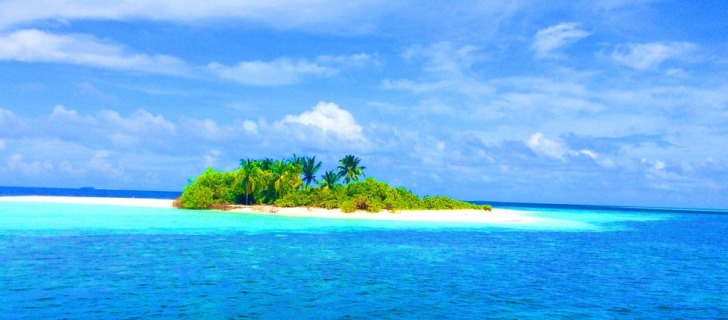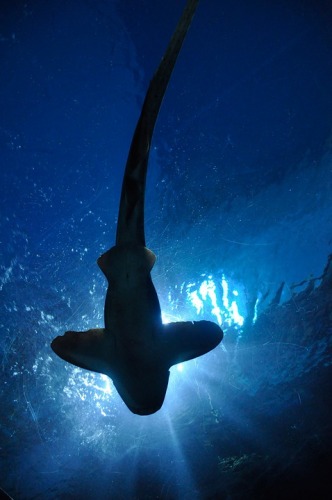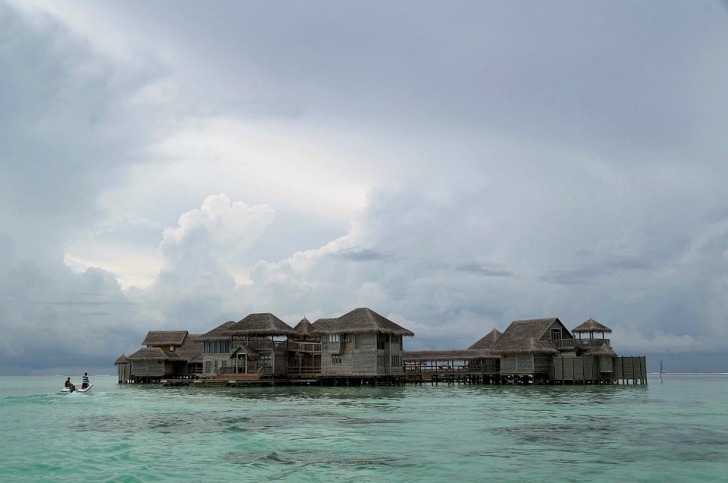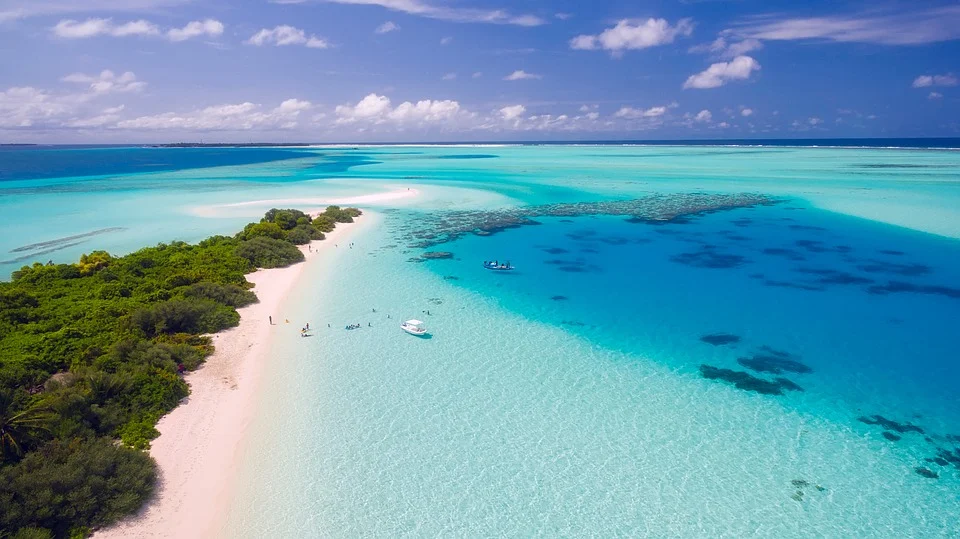The Maldives is famous for many things: stunning beaches, rich marine biodiversity, unparalleled luxury and pampering, breathtaking scenery, and overwater bungalows.
With warm ocean temperatures all year round, this South Asian archipelagic country is a popular vacation destination for beachgoers from all over the world.
Plus, the Maldivian people are known for their warmth and hospitality.
The local culture has a myriad of outside influences, from Indian to Sri Lankan to even African cultures.
But one common concern that potential visitors have is whether sharks pose a danger to swimmers in the north-central Indian Ocean.
This is a valid concern, and, whether you are a digital nomad or a short-term casual vacationer, we have everything you need to know to make your stay in this sunny paradise a fun, safe, and unforgettable one.
Contents
- So… Are There Sharks in the Maldives?
- Shark Species in the Maldives
- Is it Safe to Swim in the Maldives?
- Interesting Shark Facts in the Maldives
- Sharks in Freshwater Vs. Saltwater
- 3 Safety Tips for Swimming in Shark-infested Waters
- Summary
- Sources
- Planning a Trip to The Maldives?
- Maldives Safety Overview
- Frequently Asked Questions
So… Are There Sharks in the Maldives?
There are 30 known species of sharks in the Maldives.
The 5 most common species in this region are the blacktip, whale, grey reef, scalloped hammerhead, and leopard sharks.
Contrary to popular belief, shark attacks against humans are infrequent.
The reason people are often concerned about shark attacks is the way these marine animals have been depicted in the media over the years, e.g., Jaws and other shark-related films.
Fortunately, unprovoked shark attacks are quite rare, and humans are more likely to kill sharks (from hunting and other human activities) than the other way around.

- Black Tip Shark – The blacktip shark, known for the black “tip” on its fins, is a marine creature that is more often found in shallow waters (usually not exceeding a depth of 100 feet) than in the deep ocean. However, casual swimmers should not be too concerned. These creatures do not pose a threat to humans, and according to the International Shark Attack File (ISAF), there have only been 11 unprovoked attacks on humans since 1959.
- Whale Shark – The whale shark may be the world’s largest fish (growing up to 32 feet in length), but humans need not worry. In fact, whale sharks are known for being social around humans, often allowing them to hitch a ride by clinging to their fins. Although whale sharks are known to live farther away from shore, they can sometimes be found in shallower areas, like atolls or lagoons.
- Grey Reef Shark – Often mistaken for the blacktip shark because of their similar habitats, the grey reef shark has a dark grey dorsal surface and nearly white ventral side. It can be differentiated from other shark species by the dark margin on the edge of its caudal fin. Grey reef sharks are social creatures that mingle in groups during the day and hunt alone at night. As curious and inquisitive creatures, they often approach divers. Although they are potentially dangerous, they are very unlikely to attack human swimmers unless they feel threatened.
- Scalloped Hammerhead Shark – Weighing up to 335 pounds and reaching a length of up to 11 feet, the scalloped hammerhead shark, as the name suggests, is characterized by its “hammer-shaped” head. Although scalloped hammerhead sharks can be aggressive towards humans when they are provoked, the biggest concern is their decline in population, mainly due to overfishing for the shark fin trade. Two of its population segments have been categorized as endangered — another two as threatened under the Endangered Species Act (ESA).
- Leopard Shark – With its slender, elongated body, the leopard shark can mostly be found in a limited area, from the Eastern Pacific Ocean by Oregon to the Gulf of California in Mexico. However, this marine animal can also be found in the north-central Indian Ocean, so swimmers in the Maldives might be lucky enough to encounter this mostly harmless creature. Potentially threatened by overfishing, the leopard shark is now a protected species in both Oregon and California.
Is it Safe to Swim in the Maldives?
Absolutely.
In fact, there have been zero reported shark attacks on humans in the Maldives, so you can rest assured that its beaches are safe when it comes to sharks.
Stingrays, however, which have a deadly weapon (i.e., the tail) can be potentially dangerous to humans.
Commonly found in the Maldives, especially around the lagoons, stingrays usually only sting humans when they are afraid or feel threatened.
But when they do sting, they often target the body’s critical parts, such as the neck or chest.
That said, stingrays can be fun and interesting creatures to snorkel with; you just need to respect these marine animals and maintain a distance of about 8 feet or more.
Also, like many other popular beaches around the world, the Maldives “can have strong tidal currents,” according to the British Foreign Office (FCO).
Each year, visitors from around the world drown in the Indian Ocean’s waters, mostly due to careless swimming.
To ensure your safety, it is wise to wear fins, especially if you are swimming in a deeper area.
If you get caught in a current, the fins will make it easier to swim back to safety.
It is also important that you swim in groups, rather than by yourself.
That way, if you find yourself in a dangerous situation, it will be easier to call for help.

Interesting Shark Facts in the Maldives
Most sharks in Maldivian waters are not dangerous.
In fact, there have been no reported shark attacks on humans in the Maldives — ever.
Most of the sharks that can be found in the Maldives are mostly non-aggressive species.
Shark attacks only happen when sharks fear for their safety, so as long as you respect these creatures and maintain a reasonable distance, you should be okay.
You can go shark watching in the Maldives.
A number of Maldivian resorts offer a really interesting pastime — shark watching.
Besides spotting sharks on your snorkeling or diving trips, you can watch them from a dock or boat.
To increase your chances of spotting sharks, they might be fed fish in certain areas.
Sharks can be found in the Maldives all year round.
However, they are more likely to be found during the dry season, which runs from January to March.
Also, certain shark species tend to congregate in the waters around specific areas of the Maldives, such as the South Ari Atoll islands and the Addu Atoll.
Sharks are mostly saltwater-inhabiting creatures.
Salt in their bodies is necessary for their survival.
Without it, their cells would cease to function, which would result in the sharks boating and, ultimately, dying.
Due to their strong salt dependence, sharks almost exclusively live in saltwater.
The Indian Ocean, which is a saltwater ocean, is home to 30 shark species.
However, swimmers need not be concerned.
Shark attacks, after all, are extremely rare, and there have been absolutely no reported shark attacks on humans in the Maldives.
The fact of the matter is, that sharks are much more susceptible to overfishing and population decline than humans are to shark attacks.
3 Safety Tips for Swimming in Shark-infested Waters
- Do not swim with open wounds. Sharks have the ability to detect blood and other body fluids, even in small amounts. Therefore, if you have an open wound or are bleeding in any way, do not take the plunge.
- Avoid wearing shiny jewelry. Because sharks can see contrast quite well, it is important that you avoid wearing shiny jewelry or bright-colored or high-contrast clothing. Although they have a monochromatic vision, their sharp vision, coupled with their ability to identify high-contrast shades, can lead to dangerous results.
- Watch the behavior of fish or turtles. If these animals start to display erratic behavior, leave the water immediately. Although not always the case, this can be a sign of the presence of sharks. Also, be on the lookout for dolphins. Since dolphins are prey for some large shark species, you might end up becoming prey yourself, especially in murky waters where it is difficult for sharks to see you clearly.

Summary
The Maldives is famous worldwide for its dazzling beaches, richness in marine biodiversity, unmatched luxury and pampering, and comfortable overwater bungalows.
However, some people have expressed concern about swimming safety, especially when it comes to swimming in shark-infested waters.
There are indeed 30 species of sharks inhabiting Maldivian waters, but they are mostly non-aggressive and pose little to no danger to humans.
As a matter of fact, no shark attacks on humans have ever been reported in the Maldives.
It is much more likely that sharks will be killed by humans (due to fishing and habitat destruction caused by human activity) than the other way around.
Some common shark species in the Maldives include the blacktip, whale, grey reef, scalloped hammerhead, and leopard sharks.
Not only are these animals harmless to humans, but some of them, such as the whale shark and leopard shark, are curious and like to innocently approach human divers.
The Maldivian waters are extraordinarily safe for swimming, and swimmers need not worry about being attacked by sharks.
They should, however, be careful around stingrays.
With their lethal tails, they tend to strike humans in the neck or chest when threatened.
That is why it is important to maintain a respectful distance from these creatures when diving or snorkeling.
Another common concern is tidal currents, which, according to the British Foreign Office, kill a number of foreign tourists every year.
Ways to be safe from currents include wearing fins and swimming in groups.
To avoid getting attacked by sharks, it is essential to avoid swimming with open wounds or wearing shiny jewelry.
You should also watch the behavior of fish and turtles.
All in all, the Maldives, where you might be welcomed by friendly or harmless sharks, is an incredibly fun and safe place to enjoy your next beach vacation.
Sources
- https://www.clubmed.com.sg/l/blog/top-5-most-common-sharks-in-the-maldives
- https://www.floridamuseum.ufl.edu/discover-fish/species-profiles/carcharhinus-melanopterus/
- https://www.floridamuseum.ufl.edu/discover-fish/species-profiles/carcharhinus-amblyrhynchos/
- https://www.fisheries.noaa.gov/species/scalloped-hammerhead-shark
- https://www.telegraph.co.uk/travel/destinations/asia/maldives/articles/maldives-drowning-warning-safe-swimming/
- https://wiotto.com/en/article/sharks-in-maldives
Planning a Trip to The Maldives?
Safety first!
Here’s our safety analysis:
Maldives Safety Overview
READ THE FULL REPORT: Maldives Safety Review
Safety Index:
- OVERALL RISK: MEDIUM
- TRANSPORT & TAXIS RISK: LOW
- PICKPOCKETS RISK: MEDIUM
- NATURAL DISASTERS RISK: MEDIUM
- MUGGING RISK: LOW
- TERRORISM RISK: MEDIUM
- SCAMS RISK: MEDIUM
- WOMEN TRAVELERS RISK: LOW
Frequently Asked Questions
Where in the Maldives are sharks most often found?
Some shark species prefer swimming around the South Ari Atoll islands and the Addu Atoll.
However, you can find sharks almost anywhere in the Maldives.
They can also be spotted throughout the year.
But they are most likely to be found during the dry season, from January to March.
What is the most common shark in Maldivian waters?
Although we do not know for certain which shark species is the most common one in the Maldives, it is quite possibly the black tip shark or the grey reef shark.
Will sharks become extinct in the north-central Indian Ocean?
It is highly unlikely.
However, many shark species have been listed as threatened or endangered by the World Wildlife Fund.
Their decline in population is largely due to overfishing and the destruction of their habitats (either directly or indirectly caused by human activity).
Fortunately, some shark species have been listed as protected species, and some conservation efforts have been made to protect their populations.












the Maldives is a very safe country to visit.
However, common sense and caution are always advised when traveling to any foreign country.
Pickpocketing and petty theft can occur in tourist areas, so it is important to keep an eye on your belongings and avoid carrying large sums of cash.
Yes, but they are a natural part of the beautiful and diverse marine life in the Maldives.
The Maldives is a safe destination for swimming, as there have been no reported shark attacks on humans and most sharks in the area are non-aggressive species.